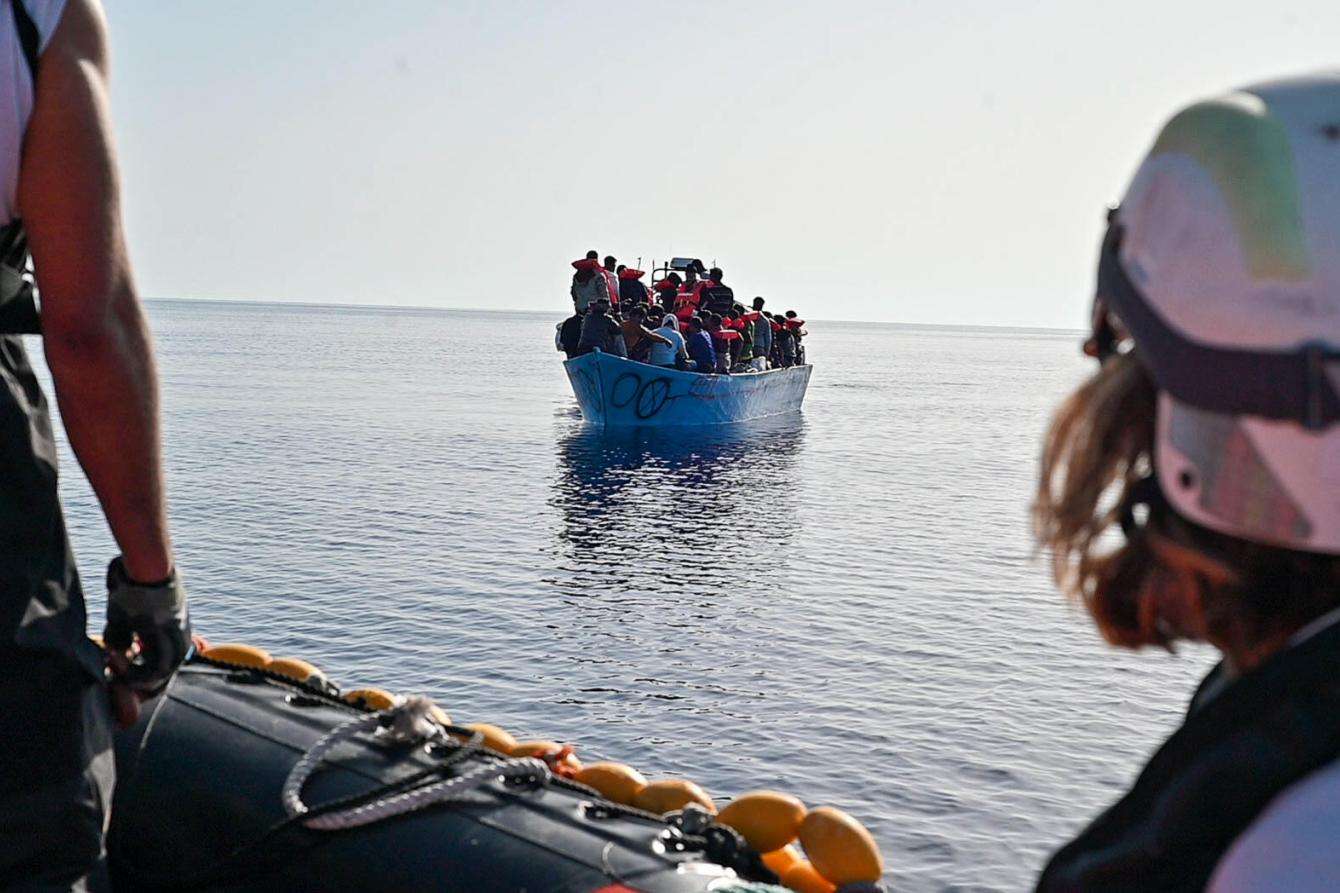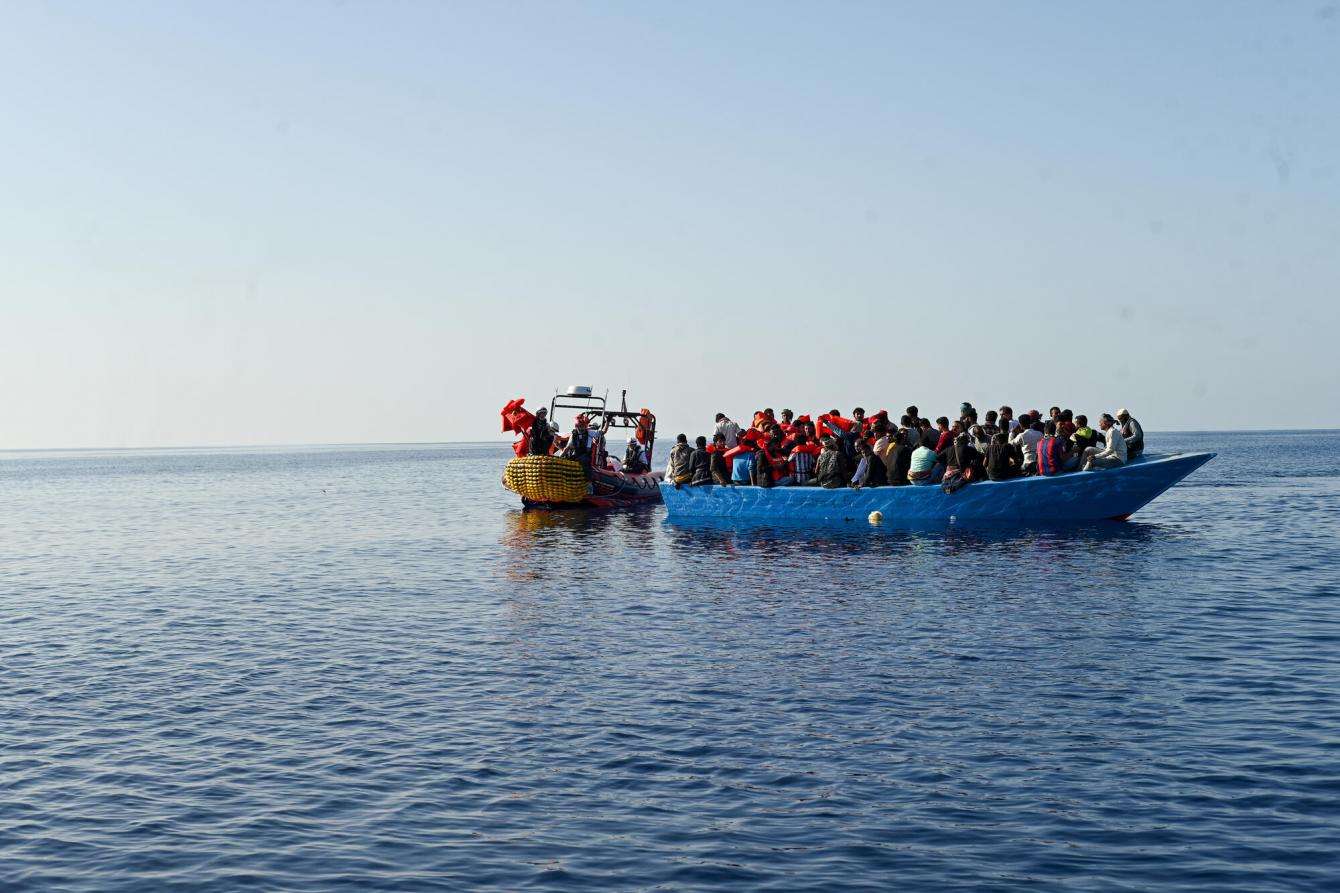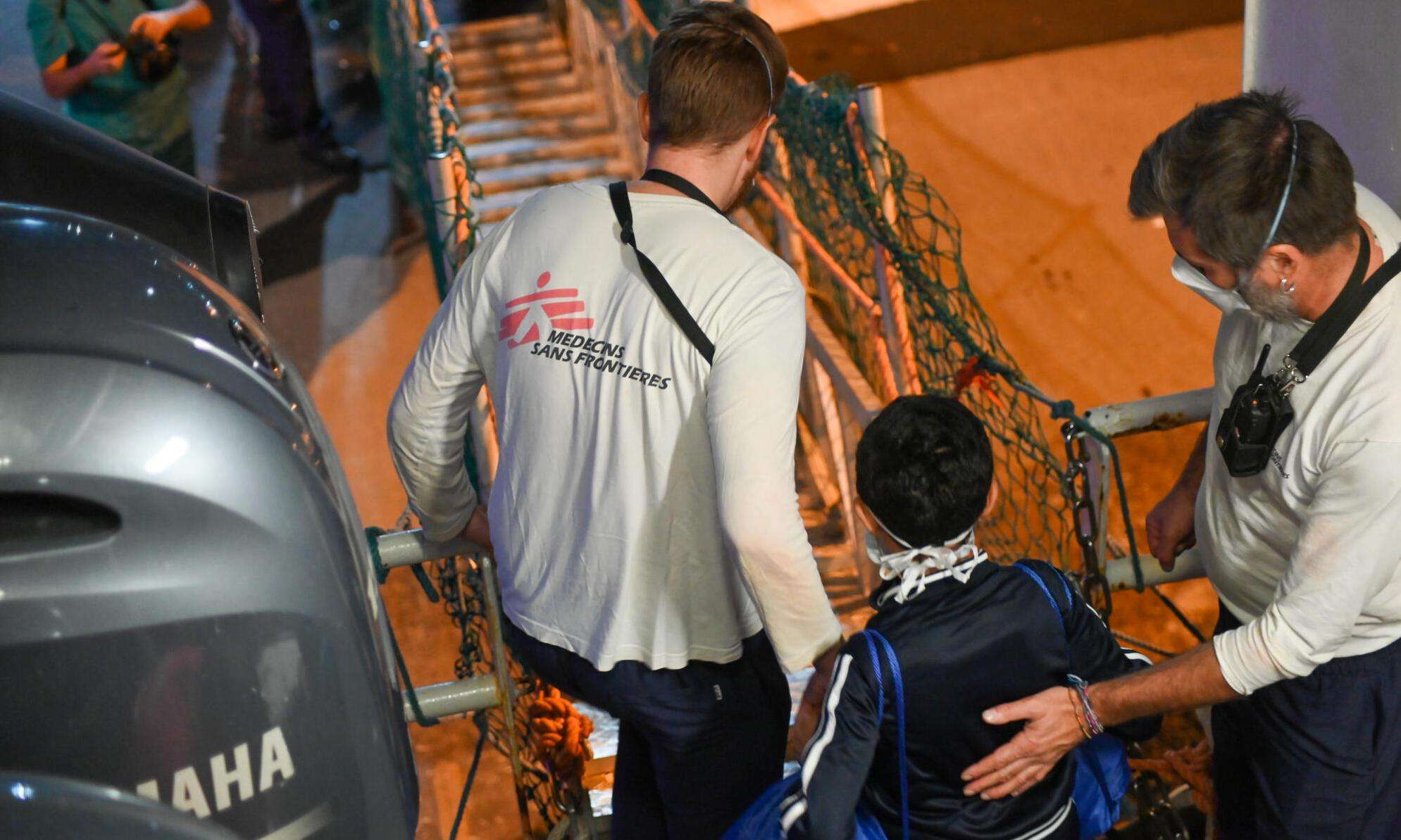On November 8, after 10 days at sea and three days of waiting at Catania port, all survivors on board the rescue ship Geo Barents were permitted by Italian authorities to safely disembark. The Geo Barents is a search and rescue ship operated by the international medical humanitarian organization Doctors Without Borders/Médecins Sans Frontières (MSF).
Initially, Italian authorities only allowed 357 people to disembark, leaving 215 people waiting on board while hostage to a fierce political debate. The decision to only select some people to disembark was unlawful and prevented survivors on board from receiving much needed assistance and protection. After the selective disembarkation process, the psychological and physical state of some of the people remaining on the boat deteriorated significantly. One survivor was evacuated due to severe abdominal pains, other survivors showed signs of anxiety, and several had panic attacks.
“The process of selective disembarkation based on survivors’ medical conditions and the delayed disembarkation carried out by the Italian authorities are inhumane, unacceptable, and illegal,” said Juan Matias Gil, MSF head of mission for search and rescue operations. “According to international maritime law, survivors rescued at sea must be disembarked in a place of safety within a reasonable time."
Relevant legal guidelines do not make disembarkation in a place of safety conditional on the existence of medical conditions or other reasons. On the contrary, responsible coastal States should make every effort to minimize the time survivors remain aboard the assisting ship, taking into account the particular circumstances of a rescue, such as the situation on board the assisting ship and medical needs.

"All I wish now is to feel safe": Stories from survivors rescued at sea
Read more“Many of the survivors carried previous trauma as the result of violence and abuse experienced in Libya, in their home countries, or along the journey,” said Stefanie Hofstetter, MSF medical team leader on the Geo Barents. “Prolonged waiting created strong emotional and psychological distress. Episodes of insomnia, anxiety, and physical and psychological distress became more frequent day by day. And for our part, we had no answers to give when they asked us why we couldn’t disembark."

On the afternoon of November 7, three survivors who were not allowed to disembark made the desperate decision to jump from the ship to try to swim ashore. One of the three men eventually returned to the ship, telling the MSF team that he had jumped only to help the other two, fearing that they could drown. The two others, Youssouf* and Ahmed*, stayed on the dock, refusing to eat or drink, as they waited for a decision from Italian authorities. After spending more than 24 hours on the dock, Ahmed had a high fever and showed signs of dehydration. He was transported to the nearest health facility to receive medical assistance from Italian health authorities.
“After days and days on that boat, I was going insane,” Youssouf told an MSF staff member who assisted him on the dock. “I had the feeling that my body and my dreams were breaking apart. I'm grateful for all the assistance I had on board, but I couldn’t stand that situation anymore."
Youssouf fled the conflict in Syria to try to make a safe life for his four daughters in Europe. "I simply want to find a place where they can be free of fear and feel safe. That is my dream, and I will not let anyone take it away from me."
Youssouf, Ahmed, and the other survivors initially excluded from the selective disembarkation were eventually granted a place of safety on the evening of November 8.

Akhtar*, a 21-year-old man from Bangladesh, told MSF staff that he left his country almost two years ago. His journey brought him first to Syria, then Libya, and ultimately to cross the Mediterranean Sea.
“I had no idea how difficult this journey would be,” he said. Akhtar described horrific conditions in Libya, where he was detained by police, held for ransom, and threatened with a machete. "I will never forgive myself for causing all of this pain to my mother. I haven’t heard from my family since. They do not know if I drowned in the sea. I just want to call them and tell them I survived.”
The Geo Barents left Catania port yesterday. The team will now prepare the ship to head back to the search and rescue zone in the central Mediterranean. “As a humanitarian organization, we will continue lifesaving rescue operations at sea in line with international maritime law, according to which we have conducted our activities so far,” said Gil. ”A rescue starts with taking people out of the water and concludes when all survivors disembark in a safe place.”
MSF has run search and rescue (SAR) activities in the central Mediterranean since 2015, working on eight different vessels independently or in partnership with other nongovernmental organizations. Since launching SAR operations with the Geo Barents in May 2021, MSF has rescued 5,497 people and recovered the bodies of 11 people who died at sea.
*Names have been changed.




